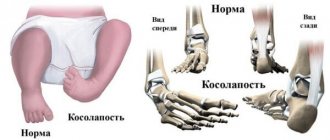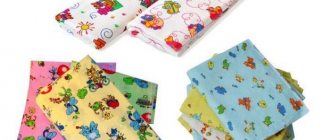The question of how to improve a child’s memory is asked sooner or later by any parent. Most often, this moment comes when the child goes to school, and a huge amount of information falls on him at once. However, there are simple ways in which you can not only improve your child’s memory, but perhaps also get rid of forgetfulness yourself.
It is worth remembering that poor memory in children is very rare, most often it is simply not developed enough, and this problem is not so difficult to cope with.
Method 1. Ask how the child’s day was
Every evening, ask your baby to tell you about his day. With all the smallest details. This is great memory training. Such monologues will help your child learn to build a chronology of events and analyze them.
At first, the child’s story will be confusing, but over time his speech will become more coherent, he will remember more and more details and small details.
To help your child, you can ask him questions: “What was your friend Katya doing when you were playing doctor?”, “What color was her dress?” etc.
Medicines to improve attention in children and adolescents
Children and adolescents require increased concentration during the learning process, and therefore are more susceptible to mental overload. Nootropic drugs improve blood circulation and metabolism in brain cells, activate thought processes and promote good study.
Modern medicine offers a large number of means to stimulate the nervous system of schoolchildren. Medicines to improve brain activity are available without a prescription, but they must be taken strictly as prescribed by a neurologist or psychiatrist. Their uncontrolled use, especially in children, can be dangerous.
Basic drugs to improve memory and attention:
- Glycine is a nootropic drug that increases performance, normalizes sleep, has a sedative effect, improves mental abilities, and activates protective inhibition processes in the central nervous system. Release form: tablets that dissolve under the tongue until completely dissolved.
- Piracetam - has a positive effect on metabolic processes in the brain, promotes better assimilation of educational material. But if there is a history of individual intolerance or renal failure, the drug is contraindicated. Release form: tablets and capsules.
- Biotredin. The drug contains vitamin B6 and threonine - substances that have a positive effect on the nervous system. The product activates the cognitive functions of the brain, has a calming effect, and helps improve memory and attention in adolescents. Release form: tablets.
- Phenibut is a nootropic drug that stimulates blood flow to the brain, reducing the tone of its blood vessels. When using this medicine as prescribed by a doctor, mental performance significantly improves, memory and the ability to remember large amounts of information are activated. The product is available in tablet form.
- Aminalon is a gamma-aminobutyric acid preparation. Restores metabolism in the brain, improves glucose processing, and removes toxins. Indicated for disorders of the nervous system, to activate mental activity. Release date: tablets.
- Pantogam is a nootropic drug containing gamma-aminobutyric acid as an active ingredient. Indicated for psycho-emotional overload, attention and memory disorders, to activate intellectual activity, and relieve nervous tension. Release form: syrup, tablets and capsules.
- Tenoten is a homeopathic medicine that improves the nutrition of children's brain cells, accelerates the maturation of the child's nervous system, and promotes the activation of brain processes. Available in tablet form.
- Noben is a product based on coenzyme Q10. As a result of intake, the concentration of this substance in brain cells increases, memory and the processes of remembering information are activated. Release form: capsules.
- Bilobil (analogs - Tanakan, Biloba and others) is a medicine based on an extract of the ginkgo biloba plant. Normalizes the tone of small vessels in the brain, stimulates the nervous system, and has a slight calming effect. The product is available in tablet form.
- Intellan - relieves nervous tension, effective for mental overload. Release form: syrup and tablets.
- Phezam is indicated for disorders of mental function, decreased memory and concentration, as well as retardation in intellectual development. The product eliminates irritability and promotes better learning. Release form: capsules.
It must be remembered that drug treatment for brain disorders alone will not be enough. You can develop intellectual functions by any available means - memorization, reading, various educational games. In addition, the child needs the care and support of his parents. Only if all these conditions are met can excellent results be achieved in a fairly short period of time.
Method 2. Read books with your child
While the child is still small, read to him, for example, interesting, memorable fairy tales or poems before bed. Try learning small quatrains by heart together. This will have the most beneficial effect on your baby’s vocabulary. And when he learns to read on his own, try to instill in him a love for this activity.
Let the book become a good friend for the child. Even if the child doesn’t really want to, let it be a mandatory rule for him to read several pages a day of a book. And be sure to ask him to retell what he read and express his opinion.
Tips for training a child's memory
Not only teachers can work with children. Parents can teach their baby at home. First of all, you need to create a calm environment at home. Stress and worries will not contribute to development.
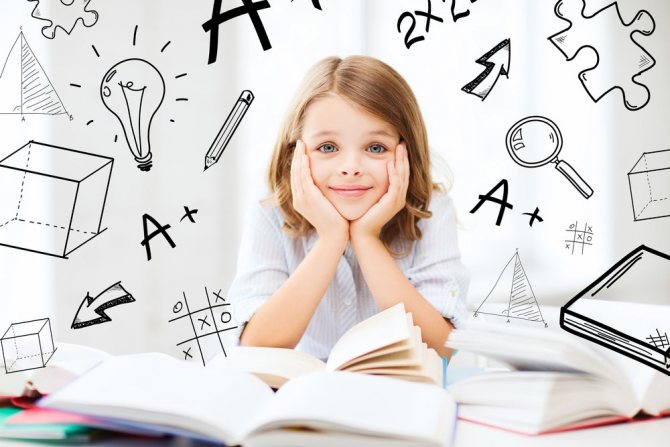
Education can begin from preschool age
In preschool age, a child especially needs emotional interaction. That's why they hug and kiss him every day. Adults should not sort things out in front of a child, as this will negatively affect his psyche.
Important! You can create rituals, for example, a certain number of hugs per day.
Physical activity also has a beneficial effect on child development. Even a regular walk with a slide or carousel will help fill the body with oxygen, which is important for the functioning of the nervous system.
Fun also influences attentiveness. Therefore, you should not pull your child back, preventing him from having fun and fooling around. Such pastime is important for the development of creative abilities.
Game forms
In preschool age, the leading developmental activity is play. Therefore, you should not expect that your baby will begin to sit diligently at the table. This is especially true at 4 years of age and older - during this period children are not particularly inclined to traditional learning.
With the help of toys, you can create many situations that will promote memory development. For example, a child is offered to go to a store with a doll and buy a certain set of goods. Gradually, the number of items is increased from 2 items to six or more.
Finger games help a lot, as they involve a certain sequence of actions being counted. Memo games where you need to look for two identical pictures have proven themselves well.
The relevance of traditional memorization of poetry
There are different methods for developing memory. One of the most popular is memorizing poetry. For preschool children, simple quatrains are used that are easy to rhyme and memorize.
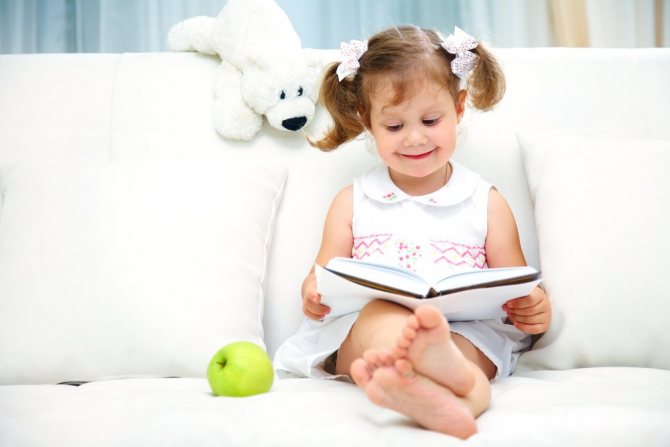
With the help of poetry, children broaden their horizons, learn to rhyme poetry and develop a cultural level
Exercises with poems are easy for those who have a good memory. Therefore, it is necessary to select the right material, taking into account the individual characteristics of the child. Memory training begins with small poems of three or four lines.
Environmental education classes for preschoolers
To facilitate the process, use a little help in the form of visual support. For this purpose, special schemes are drawn up, which consist of small symbols. In this case, the child uses vision to memorize and it is easier for him to assimilate the verse.
Memorizing a poem allows you to improve your memory in the shortest possible time. Therefore, such exercises begin to be given from kindergarten.
Method 3. Play words with your child
- Tell your baby 10 words and ask him to repeat them. You can choose words on a specific topic (fruits and vegetables, food, toys, trees, flowers, what objects are in the room, etc.). All the words that the child did not name must be reminded. It is believed that if a 6-7 year old child can repeat 5 words out of 10, he has a good short-term memory, and if he says 7-8, his long-term memory is also well developed.
- To develop visual memory, you can lay out pictures (for example, 5-7 pieces) and ask him to remember them . Then you can remove one or two and ask what is missing, or mix all the pictures in places and ask the child to put them in the original order.
- With older children you can play this game a little differently. Place a photo or picture in front of them with lots of details. Let the child look at it for 15-20 seconds, trying to remember as many details as possible. Then remove the picture and ask him to write down a list of everything he remembers on a piece of paper.
Exercises that develop memory
You should not perceive the learning process as something boring and uninteresting. Even ordinary toys can be used in the process. Your child will definitely enjoy these activities.
Memory development in children begins with simple tasks. Only after successful completion are they gradually made more difficult. Usually they take as many items as the baby is old, i.e. if he is two years old, then two toys.
In early preschool age, the game “Hide the Object” works well. To do this, they place toys in different places, give the child time to memorize, and then ask him to leave. At this moment, the adult hides the toy and asks the returning child to tell him what has changed.
There is a simple way to develop memory in children. It is enough to ask your child about kindergarten every day.
Important! Describing everyday moments helps develop memory.
Therefore, the preschooler talks about what he ate for breakfast and lunch, what he played, what activities he had. Additionally, he develops the skill of coherent speech.
You can train your memory by discussing fairy tales. As soon as an adult reads a fairy tale, poem or story, it needs to be analyzed in detail. The child must name the main characters, main events, etc.
It is imperative to improve not only visual memory, but also auditory memory; ball games are suitable for this. A preschooler should catch it only if it is called an “edible” word or if it begins with the sound [A].
Drawing using the “Monotype” technique for children in preschool educational institutions
Note! Having multiple children can make things more challenging. Each child names an object from the topic “Transport” (or any other), after which the presenter must reproduce all the named words.
Additionally, you can make meme games on any topic. To do this you need to make a set of paired cards. For example, different vegetables. To begin with, you can limit yourself to 10 pairs.
The cards are laid out face down in front of the child. He has to look for identical ones, but he only picks up two at a time.
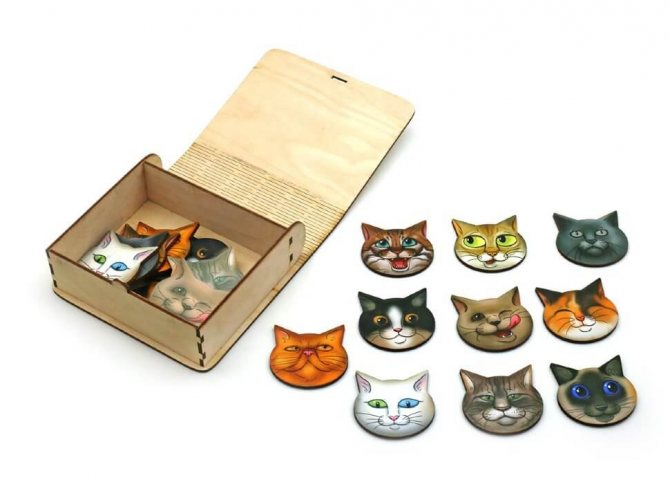
There are ready-made sets of memo games made from different materials
Parents do not always understand how to develop their child’s memory. In this case, a consultation with a psychologist will help them. The specialist will suggest exercises for different periods.
For example, in older preschool age, you can name a number of words and ask the child to repeat them. It is undesirable to use visual support, as this is necessary for the development of auditory memory.
Method 5. Master the Cicero method
The essence of this method is to mentally arrange the objects that need to be remembered in a well-known space - this could be your own room, the attic, or any room that the child knows well. The main rule of this principle of memorization is that we mentally reduce large objects, and increase small ones.
For example, a child needs to remember 5 words - umbrella, bear, orange, hippopotamus, sea, chair. All these words need to be mentally placed in the room: an umbrella should be hung on the door handle, a large orange should be placed on the windowsill, a chair should be placed in front of the bed, a tiny bear should be sent for a walk under the flower on the window, and a small hippopotamus should be sent to sleep on the bed, and the sea should rage on the TV. After some training, the child, in order to reproduce the chain of words, will only need to recall the interior of his home in his memory.
Method 9. Teach your child to strain his memory
The easiest way to develop memory is training . Sounds corny? Yes, but without regular exercise nothing will happen. And in our age of tablets, smartphones and the Internet, it is becoming increasingly difficult to strain your memory, because the easiest way is to look for something forgotten on the vastness of the World Wide Web. And children master these skills almost from the cradle.
Therefore, it is so important to teach a child that if he has forgotten something, let him first try to remember on his own, and only if nothing comes out within a few minutes, let him look in a dictionary or the Internet.
Also interesting: How to improve memory - simple recommendations from Eastern medicine
Necessary books: what to read for children from 10 to 13 years old










